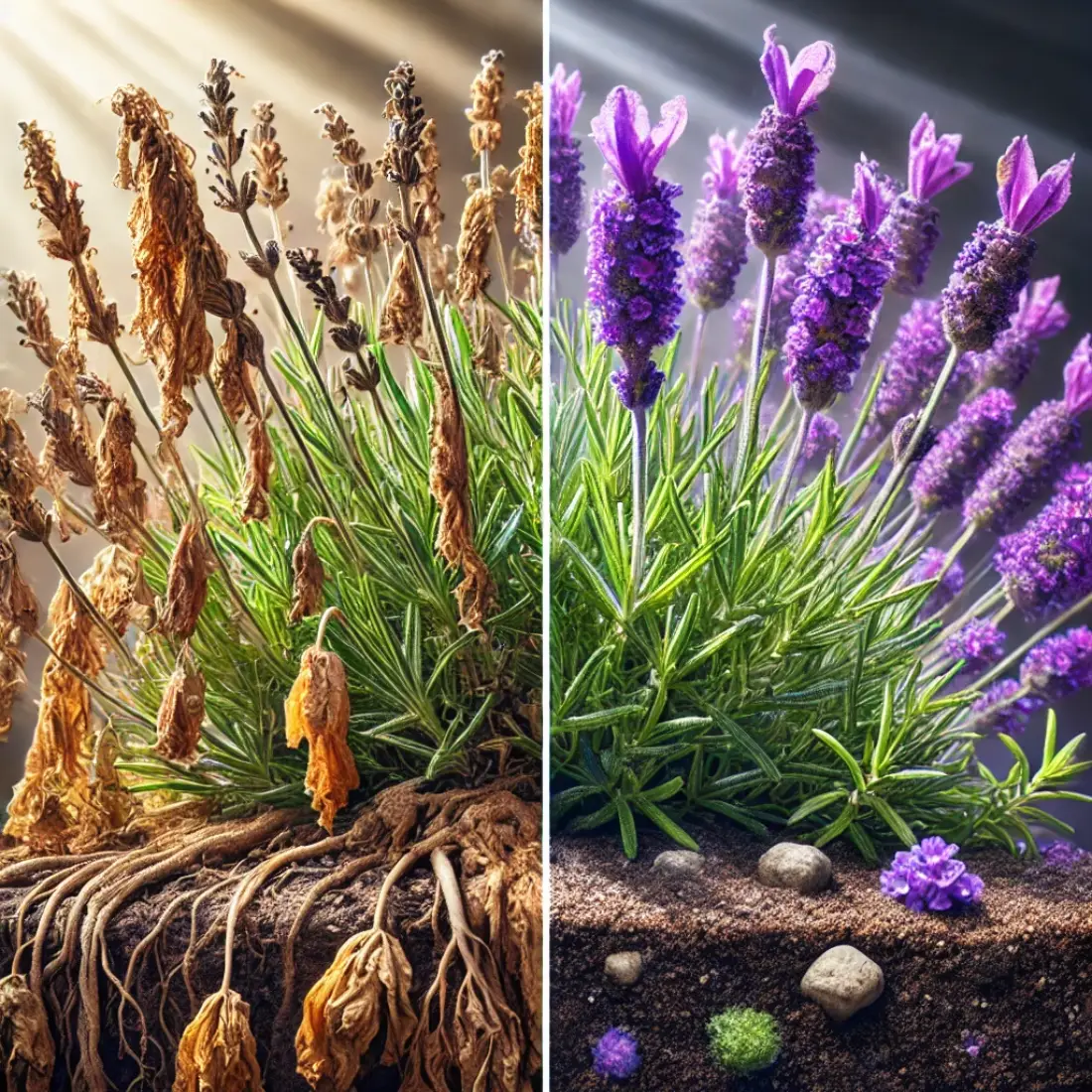Eucalyptus oil is an essential oil derived from the leaves of eucalyptus trees, especially Eucalyptus globulus, through steam distillation. This natural oil is rich in eucalyptol (cineole), which gives it a strong, camphor-like scent and medicinal properties.
Eucalyptus oil is known for its antimicrobial, anti-inflammatory, and analgesic effects, making it popular in aromatherapy and medicine. In organic gardening, it’s valued for its natural pesticidal, antifungal, and insect-repellent properties. Proper use of eucalyptus oil helps control pests, prevent diseases, and promote plant health, providing an eco-friendly alternative to chemical treatments.
- Eucalyptus oil is an effective natural pesticide.
- It has antifungal properties.
- It helps in repelling pests and insects.
- Eucalyptus oil promotes healthy plant growth.
How Eucalyptus Oil Works in the Garden
Eucalyptus oil is a versatile and powerful tool in organic gardening, known for its ability to control pests, prevent diseases, and promote plant health. Its effectiveness stems from its primary component, eucalyptol, which has potent antimicrobial, antifungal, and insect-repellent properties.
Pest Control: Eucalyptus oil acts as a natural pesticide, effectively repelling and killing a variety of garden pests such as aphids, whiteflies, and spider mites. When sprayed on plants, the strong scent of eucalyptol disrupts the pests’ sensory receptors, deterring them from settling on treated plants. Additionally, the oil’s toxic properties can directly kill small insects upon contact.
Disease Prevention: The antifungal properties of eucalyptus oil make it an excellent remedy for preventing and treating fungal infections in plants. When applied to affected areas, the oil inhibits the growth of fungi, such as powdery mildew and black spot, by disrupting their cellular processes. This helps maintain the overall health and vigor of the plants.
Growth Promotion: Eucalyptus oil can enhance plant growth by improving soil health. Its antimicrobial properties help suppress harmful soil pathogens, promoting a healthier root environment. Furthermore, the oil can improve nutrient absorption, enabling plants to take up essential nutrients more efficiently.
Application Methods: Eucalyptus oil can be applied in various ways, including foliar sprays and soil drenches. For pest control, a diluted solution (usually 2-3% eucalyptus oil mixed with water) can be sprayed directly on the plants. For fungal issues, a similar solution can be used as a preventative measure or treatment.
Preparing Eucalyptus Oil Solution
Eucalyptus oil is a potent essential oil that needs to be properly diluted before use in gardening to ensure plant safety and efficacy.
Dilution Ratios:
For most gardening applications, a 2-3% eucalyptus oil solution is ideal. This concentration is strong enough to be effective against pests and diseases but gentle enough not to harm plants. To create this solution, mix approximately 10-20 drops of eucalyptus oil with 1 liter of water. For a more precise measurement, use 5-6 drops of eucalyptus oil per cup of water.
Mixing Instructions:
- Gather Your Materials: You will need eucalyptus oil, water, a measuring cup, a spray bottle, and a mild liquid soap (optional).
- Measure the Water: Pour 1 liter of water into a clean spray bottle.
- Add Eucalyptus Oil: Add 10-20 drops of eucalyptus oil to the water. If you’re preparing a smaller batch, adjust the drops accordingly.
- Add Mild Liquid Soap: Add a few drops of mild liquid soap. This acts as an emulsifier, helping the oil mix well with water. Shake the bottle gently to combine.
- Shake Well: Before each use, shake the spray bottle well to ensure the oil is evenly distributed in the solution.
Storage Tips:
- Store in a Cool, Dark Place: Keep the prepared solution in a cool, dark place to maintain its potency. Avoid direct sunlight.
- Label the Bottle: Clearly label the spray bottle with the date and contents to avoid confusion.
- Shelf Life: Use the solution within a few weeks for maximum effectiveness, as essential oils can degrade over time.
Application Tips:
- Test First: Before applying the solution to your entire garden, test it on a small area to ensure there are no adverse reactions.
- Spray Evenly: Apply the solution evenly to the plant leaves, both on the tops and undersides, to maximize coverage against pests and diseases.
- Reapply as Needed: Reapply the solution every 7-10 days or after rainfall to maintain its effectiveness.
FAQs about Eucalyptus Oil
How often should I apply eucalyptus oil in my garden?
Apply eucalyptus oil every 7-10 days or after heavy rain for effective pest and disease control. For preventative measures, spraying every two weeks is usually sufficient.
Can eucalyptus oil harm beneficial insects?
Eucalyptus oil can affect beneficial insects if overused. To minimize harm, apply it during early morning or late evening when beneficial insects are less active and avoid over-spraying.
Is eucalyptus oil safe for all types of plants?
Most plants can tolerate eucalyptus oil, but it’s always best to test on a small area first to check for any adverse reactions. Some sensitive plants may show signs of stress if the solution is too strong.
What are the signs of over-application of eucalyptus oil?
Signs of over-application include leaf burn, discoloration, and stunted growth. Always use the recommended dilution ratios and avoid excessive application.
Can eucalyptus oil be used in conjunction with other organic treatments?
Yes, eucalyptus oil can complement other organic treatments like neem oil or compost tea. Combining treatments can enhance their effectiveness against pests and diseases.
How do I store a eucalyptus oil solution?
Store the prepared eucalyptus oil solution in a cool, dark place, away from direct sunlight. Label the spray bottle with the date and contents, and use the solution within a few weeks for best results.
Can I use eucalyptus oil on edible plants?
Yes, eucalyptus oil can be used on edible plants, but ensure you wash the produce thoroughly before consumption. Always follow the recommended dilution ratios to avoid any residue.
Does eucalyptus oil kill all garden pests?
Eucalyptus oil is effective against a wide range of garden pests, including aphids, whiteflies, and spider mites. However, it may not work on all pests, so it’s good to use it as part of an integrated pest management plan.
How can I enhance the effectiveness of eucalyptus oil as an insect repellent?
Combining eucalyptus oil with other essential oils like citronella, lavender, or peppermint can enhance its insect-repellent properties. Always ensure the combined solution is properly diluted before application.
Is eucalyptus oil effective against fungal diseases?
Yes, eucalyptus oil has strong antifungal properties and can be effective against fungal diseases like powdery mildew and black spot. Regular application can help prevent and treat these infections.











